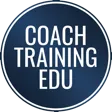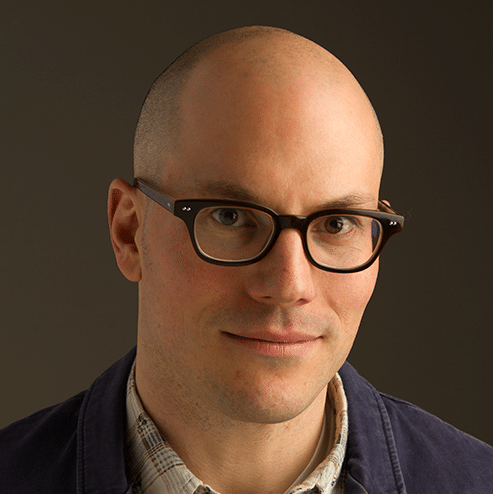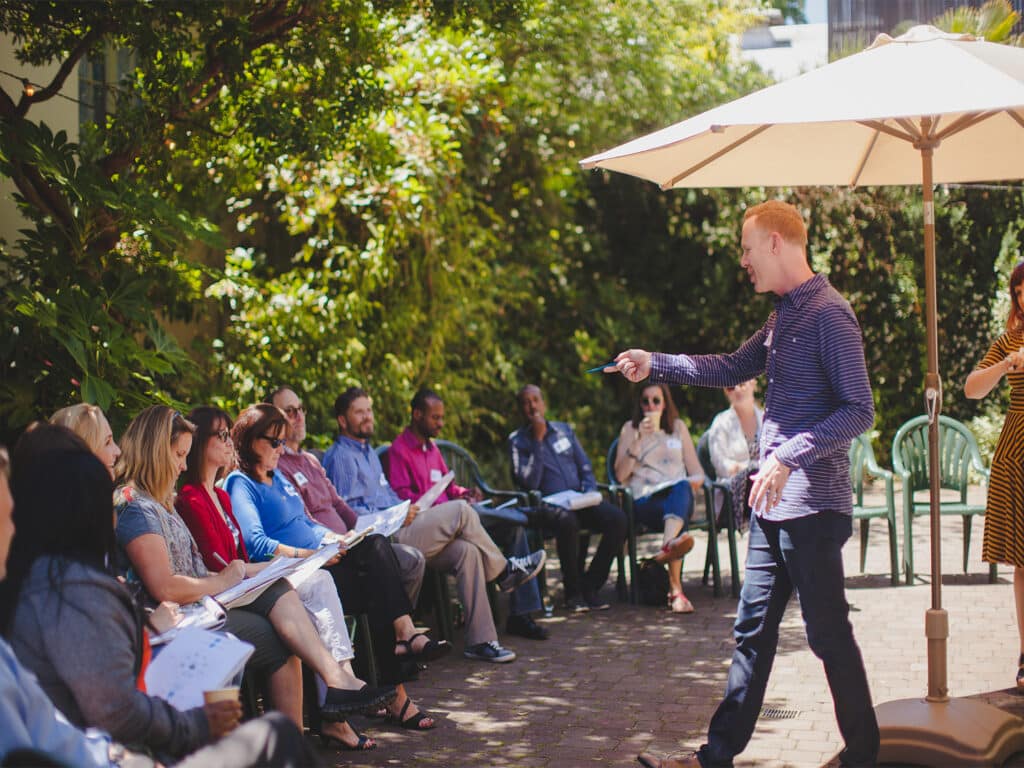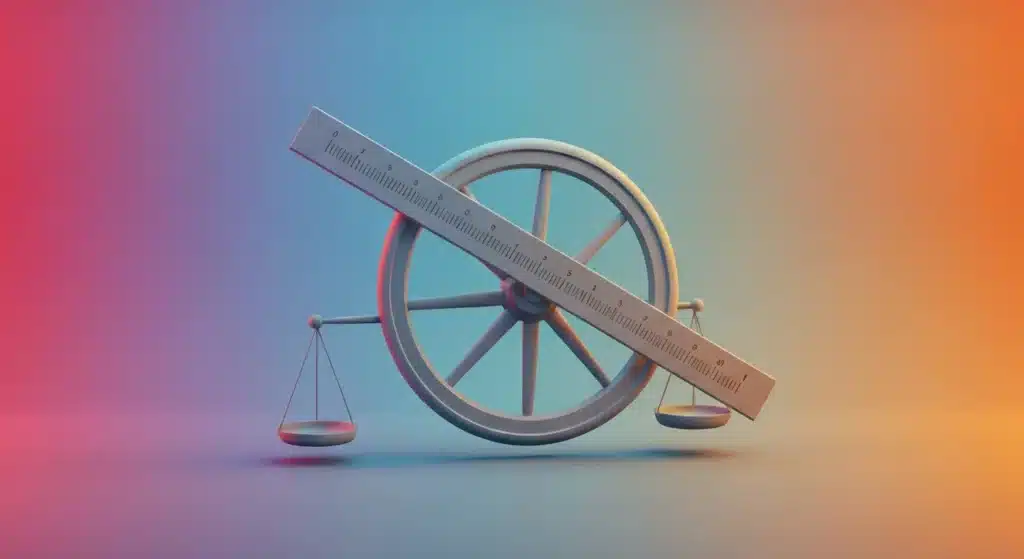Listen to Podcast
Be Curious!
Raj Anderson and guest experts answer your coaching questions each week!
In Coaching to Flourish #073, Raj Anderson and CTEDU Founder John Andrew Williams discuss International Coaching Week, with reflections on the present state and challenges of the coaching field, and the role of coaches in their own lives. They also dive into the nuances of shifting our mindset from that of ‘potential’ and maximization, to ‘practice’ and harmony.

Live Transcript (unedited)
[Raj Anderson] Welcome to the Coaching to Flourish podcast. I’m your host, Raj Anderson, coach assessor and trainer, and I’m here with John, the founder of Coach Training EDU. And I’m really excited. It’s a special day, it’s a special week. It’s International Coaching Week with the International Coaching Federation, and, there’s so much to celebrate in the coaching field. What, what do you wanna celebrate, John?
[John Andrew Williams] What do I – I feel this, uh, I mean, a lot of things. It’s spring here and literally the leaves are, they, they have just come into being, uh, this, this last week, two weeks. It feels a little bit like a transformation. I mean, it’s a transformation. It’s looking at sticks, and then these sticks spring to life, and the leaves just come out.
It’s, it feels to me a lot like a metaphor for coaching, where you see something and you’re not quite sure, okay, is this, is this, uh, you know, is this thing gonna go? And then you, you just trust, and you have faith in the process, you have faith in your brilliance. You have faith in the, the inner – I don’t know, strength of nature, and it comes out. And Wow. So I’m like, looking at this.
There’s specifically this oak tree that did not do great last year, cause I was watering the trunk with my new irrigation system. And I talked to a tree person, he said don’t do that. So I didn’t do that. And I was waiting with baited breath to see whether or not this oak tree would be better this year or not. And it’s way better! Like on a scale of one to 10, it’s like a 10. And I look at it every day. I’m looking at it right now. I feel like it’s, it’s those things that bring such joy, and it just, yeah. So to celebrate, I wanna celebrate the oak tree as a metaphor for the coaching profession and process.
[Raj Anderson] Thank you John. Why do you think it’s so important that we continue to celebrate the coaching field? It’s come so far, hasn’t it? And what has been your experience?
[John Andrew Williams] Yeah. I mean, when I first started it was, it was so new. It was so, it felt like – this is back in 2003 and, um, in less than.. I mean, 1995 is the official founding of the ICF.
So it, I was thinking about the, I was thinking about this this morning too. Like the word coaching, life coaching, it’s a good name. The word Life makes it kind of cheesy, and a lot of people have a misconception that a life coach is someone who just tells you what to do. Uh, it’s even in pop culture all the time, from you look at Last Holiday to Sing to, I mean, a lot of these movies have references to life coaches. And almost every single one of them it’s, Oh, like I got this advice from my life coach.
And, uh, I think coaching is, the biggest misconception is that coaching is not about giving advice. It’s about asking powerful, empowering questions. So I was thinking, if there’s a way to communicate that – and then I go through it like, no, it’s – coaching works. Like, just keep it. But we need to do our job as people who are coaches, who are certified coaches, we have a responsibility to represent the coaching field and to address these misconceptions of what coaching is and isn’t. So that’s, that’s what I feel like is the work as I see it.
If I were to look at the coaching field, like, where we are today as a whole field, I feel like that is the biggest challenge that the field has, is the education of everybody into what coaching is and isn’t. That’s what I see as the state of the field. Other than that, I feel like the field is getting adopted at extreme rates. And this work is happening. People are going to know what coaching is and isn’t. It’s a matter of how quickly that happens. And each one of us, each as individuals, has a role to play in the speed of that.
[Raj Anderson] Yes, absolutely. And I think when people don’t understand what it is, it’s probably one of the most underrated or underestimated skills that somebody could actually have. Uh, I think I’ve shared before, you know – well, this is why I’m here with you, how passionate I am about coaching, and how much coaching changed my own life.
And speaking to what you just shared, I actually posted a quote, um, today on LinkedIn. There’s some research done by Bersin, by Deloitte. And it said that organizations with senior leaders who coach effectively and frequently improve their business results by 21%, as compared to those who never coach. Coaching, therefore, should just be, should not just be nice to have, but more an indispensable part of a leader’s skillset.
[John Andrew Williams] Right. I mean, 21% to me feels about right. I mean, that seems like it’s – I mean, that’s huge, like from a, a large scale business perspective. I’m curious, Raj, when you’re working with individuals in the executive world, uh, what, what’s some of the feedback that you receive from executives who you’re probably the first coach that they’re officially working with?
[Raj Anderson] Well initially it’s like, oh, this isn’t what I expected it to be. Yeah, yeah. ‘Oh wow. I didn’t realize I was gonna be doing most of the talking.’ Those kinds of things. Um, and initially, first couple of sessions the go-to can be, ‘Well, what would you suggest, or what would you advise?’ Or ‘Well, what will we be doing in this space if you’re not going to be advising me or telling me what to do?’ And that’s always interesting to unpick or explore through.
And sometimes I work with execs who have had coaches before or they’ve worked with mentors. And not saying that there hasn’t been value add from that experience, but often what I hear is, Oh, this is very different. And then you see people smile, and they start to enjoy not having somebody telling them what to do or attempting to fix it for them.
[John Andrew Williams] So true, so true.
[Raj Anderson] Yeah. And, and people realizing that they have the answers within themselves. And actually – and I’ve shared this so many times, and you and I have talked about it, and this is why that design the alliance and that initial conversation – and I call it a conversation cause you’re not in coach mode as a coach during that design the alliance piece – is so important.
And, and I think that’s where we as coaches are adding that education. And sharing then not just what is coaching, what isn’t coaching and how it differs from consulting or mentoring or therapy. I also share, you know, what will a coaching session look like, and kinds of tools we will use. And I allow clients – and I’ve learned that they often have questions. So in that first space, they might have questions for me. And if I still work with a coach, people are curious about those things as well. What are your thoughts on that, John?
[John Andrew Williams] Yeah, it’s, it’s very common. I mean, I, I have the same kind of conversations. I feel like a lot of, you know, when I was working, especially in the executive space. I think when I work in the academic space, there is such a systematic way that I, I unfold what, what to expect, that I don’t get a lot of the same kind of questions from when I have worked in the executive space. Where, I think sometimes there’s a, there is a sense of, Okay, I’m here, but I want you to prove that this is worth it to me to be here.
And I need, like – there’s sometimes like, I need more than just my own sounding – like, and you know, I need, I need more than just my own space. But then very quickly I think there’s this, there’s a realization where it’s like, Wow, okay, this can get really good, really quickly, if I know how to use this resource.
And so I think there is an element of client education that happens very quickly in this process. Uh, and especially if, let’s say clients in the executive space come to you because other colleagues or other contacts have said, Hey, this has changed my life. This has made a big difference. And, uh, studies like the one from, uh – you said was Gillette did that?
[Raj Anderson] Deloitte. Yeah.
[John Andrew Williams] Deloitte. Um, yeah, not Gillette. They’re, uh..
[Raj Anderson] They might have done a study too.
[John Andrew Williams] I think they’re, I think they’re, uh, patriot fans, which let’s not go there.
Uh, the um, the idea of, you know, the, these kind of studies are always fascinating to me. Where it’s like, okay, how do they get those numbers? Uh, they, they seem about right in my experience too. Like the times when I am working with a coach and not working with a coach, the times that I am working with a coach are just better. It’s hard to explain why, but they are. And, uh, when I get into it and I realize, okay, this is why, I think there’s an element of accountability that happens. There’s an element of exploration.
Uh, I’m currently right now working with three different coaches, uh, in very specific, very specific things. Like, two of them in specific things and one of them in general. And, uh, what I, when I really think about why – that’s, that’s a good question.
Last week, just a very tangible example. Something came up, I needed to talk to one of my coaches. I was able to process with her, everything I needed to process about this. Just let it all out. And then I got finished. It was amazing. And I came in and, uh, you know the other people in my life, and they’re like, Hey, how’d it go? Like, what’s going on? And I could give them the, you know, two minute summary, complete with my emotion state being reorganized and you know, an empowered perspective, and a very balanced perspective. And just, yeah, I’m in my power right now. And this is the decision, this is the direction that’s going, that I think this is going to go.
And it was a two minute just – Yeah, of course. Check, check, check – rather than a 30, 45, maybe 50 minute, you know, me processing all of that at – when? You know? Just because I need to process it? And like the rest of the team, it’s not really for the rest of the team to process that. So, I mean, it just, it’s, it’s the efficiency of processing and decision making that I see makes that difference.
But it’s not conscious. It’s not like I’m, you know, in real time I’m not like, Oh, this is why, this is why coaching is great. This is why coaching – I mean, that’s not a top of mind, it’s just, it’s in, it’s baked into the process. It’s like looking at, uh, you know, your nephew or niece and you, you know, you’re away for a couple months and come back and go, Whoa, you grew.
It’s like that, you know, when you’re coaching. It’s like, it’s hard to see yourself evolve sometimes so quickly. But when you look at yourself in three months and where you’ve been in three months from working with a coach, you’re like, Wow, I grew. So that’s, yeah. That, that, that’s what I’m, that’s where I’m going now with, with that space.
[Raj Anderson] That’s cool, John. And, and what do you look for when you’re selecting a coach?
[John Andrew Williams] Oh, I am not a really great coaching client to have. Uh, I’m, I’m very picky. I give very direct feedback. I have to have a coach who’s very confident in themselves and the process, but also gives me a lot of space to go and do my thing.
Uh, I think the number one thing I look for when I’m working with a coach is someone who is confident enough to let me process what I need to process. And say, Okay, let, let John do John, and let him like, you know, say all the things. Uh, and when something comes up, when I bring a challenge, not to tell me what to do or how to deal with that. I have shut – I have, I have in real time shut down coaching sessions because of that. Said, you know what, this is great, but I, I got another call, I gotta take this, bye. I will shut it down. Uh, simply because it’s not what coaching is designed to do.
I’m not coming to a coach or sharing this stuff so that I can solve the outside problem. I am bringing this stuff so I can solve and explore the inside world. Like, okay, this is, why is this hooking me? Uh, yeah, we can solve it. We can figure out, okay, do step A, B, C, D. That will solve it, fine. But the bigger thing is why, why do I feel this inner tug in the first place? And I know enough not to waste the, the problem, not to waste the opportunity to look at something if I feel hooked on the inside.
And so that’s where, uh, that that is the number one thing I look for with a coach, is how willing are they to help me explore that inner world without the judgment, versus their feeling or need to fix the external world.
Yeah. I’ve had to tell someone working with me as a coach – and I tell them this directly. I mean, I, I am very, I am very specific. And I can’t hire coaches I’ve trained. And that’s the other thing. So I go and I have to go and find other coaches trained by other organizations, and then I realize, no, this is why I train people. Like this is why, like – I’m like, it’s good, but I can make you better. But it’s, ah, it’s so frustrat – I mean, it’s a really, it’s a really weird, frustrating space to be in. I don’t wanna sound like I’m whining. I am not complaining in any way, shape, or form.
And I do think that our – the coach, the coaching that, that we do at Coach Training EDU, it is the coaching that I wish I could have. And I designed it that way. And it’s the coaching that I know works really well, just given a decade and a half of feedback. Uh, and, I mean, I could go into all the theory behind it, why this works.
But I really do feel like the coaching field is moving more in this direction. Even the ICF in their, in the way that they move their, uh – they used to have 11 standards, now they have eight, uh, you know, different categories of standards. They have moved more in the direction that we train people in, which is that explorative, you know, uh, looking at different, um, you know, ideas of learning, things like that. Yeah, so.
[Raj Anderson] I agree. And I, I’ve had that experience myself, and I’ve had to stop working with coaches before.
And I, I hired a, a coach around, um, physical training. But I remember selecting this coach because the coach said, um, they weren’t just gonna be training. They’re gonna dig deeper and do that coaching. And very quickly in the session I was like, Hmm, no. I’m being told what to do. And it was, it was great actually, because, experiencing being told what to do, or asked why I wasn’t doing it, really helps you see the perspective of your own coachees. Cause it wasn’t a good feeling.
And I got a little bit irritated and I was like, Well, if I knew that it wouldn’t potentially be in this session. I’d like to – and I said, I’d like to go deeper. I’m smart, I can print out checklists and timetables. I know I should be getting up and doing this in the morning. I know about calories in and calories out. I want to explore deeper. And then I found myself and I thought, oh gosh, I’ve gotta stop this. You know, maybe if you can ask me about my values. And I’m – now I’m coaching myself in here.
[John Andrew Williams] Yeah, it’s a thing. It’s a thing.
[Raj Anderson] So John, one of the, the themes for International Coaching Week is around exploring your potential. What does exploring potential mean?
[John Andrew Williams] The word potential comes from a Latin word, potents, which literally just means power, or like the ability to do something. I always – thinking, you know, where people are thinking of their highest potential as a, um, uh, I don’t know. It’s an interesting – I think, I think in some ways it’s a trap, and in other ways it can be uh, extremely fruitful to explore it.
Um, you know, a lot of times in school, you know, teachers will say, Oh, like, they’re not, the students aren’t working up to their highest potential. Or, uh, that comes up a lot. It’s one of those words that feels like it brings up, uh, a lot of emotion, or – you’ve heard this, almost everyone has heard ‘highest potential’ in school.
The way that I think it’s used is, uh, more around, you know, what traditional school looks at. Which is, is a student applying themselves, uh, you know, are they applying themselves and, you know, getting the a hundred percent or getting the grade that they need to get in, in that space?
And so I think within that context, I think what potential puts people in is it puts people into a fixed mindset, where there is such a thing as a potential. There’s such a thing as the highest potential, there’s such a thing as a hundred percent in our lives that we’re somehow like – we’re somehow achieving for.
But when you’re really unpacking it and looking at it from a growth mindset, there’s no such thing as highest potential. It just doesn’t exist. It’s a mental construct. And when people get into that, I, I think it really plays into this traditional mindset of, there’s a grade. There’s, there’s a possibility of a hundred percent. So this, I – so when you’re looking at potential from a fixed mindset standpoint, that’s, those are my thoughts on it.
From a growth mindset standpoint, it’s more around the effort in the practice. Like, so in, in coaching theory, it’s called being internally referenced. Are you applying 100%, are you applying all the effort you can possibly put into this? And are, you know, uh, and building a stamina to, to, and, and a way to keep it sustainable over the long run?
So it’s almost like if I, if I could change this, I would change it – the word from potential to practice. Are you engaged in meaningful, consistent, systemized practice? Forget about potential. Focus on practice, the actual like, What are you really putting into this day after day? And then potential will follow.
I find when people focus on potential, it’s a lot of, it’s a lot around judgment. When people focus on practice, you can then, you know, shift it into curiosity, like what’s gonna be useful for it, not useful for it. Uh, those are my thoughts on it. And I don’t mean to like, deflate the balloon of yay, international coaching week! Like, highest potential, go after it. It’s good marketing. Why not?
But in terms of like actual, like, you know, rubber meets the road, it’s practice. It’s consistent practice, habit systems. Um, are you trying stuff out? Are you failing enough? Are you, uh, are, are you really pushing yourself enough? Are you succeeding enough? Like, you know what I mean? Like, it’s, it’s more of a, a mindful design of, how are you dealing with the actual physical actions?
I once had, a coach told me, he’s like, Look, you’re not, he said, You’re not going to think your way out of this. You’re not even gonna feel your way out of this. You have to act your way out of this. But the thoughts and the emotion are also present, they will affect your actions. That to me is practice.
[Raj Anderson] I love that perspective, John. Uh, I, I’ve seen the, the word potential overused. And, and actually people have their own, as you said, their own interpretation of what potential is.
If I think about what I was told in school, or even by society, or, or upbringing as an Indian woman. And, and I was talking to somebody the other day and I said, I have often been, uh, underestimated. And I’ve used that underestimation to my advantage at times. Yet, if I had listened to what others thought my highest potential was based on their world of the map and their belief system, I wouldn’t be sitting here talking to you right now. So I’m very curious about that and I, I like the way you are talking about meaningful, consistent practice. That’s super cool. It’s more empowering to me actually.
[John Andrew Williams] Yeah, the, um – Lindsay, Lindsay Helm. One of, one of the first people I trained. And, you know, she’s now in Philadelphia, and she and her husband have a, a successful, uh, physical gym, you know, physical therapy gym, mental mindset, growth mindset, coaching-based organization. She’s amazing. She gave a whole talk, 20 minute talk on highest potential and the trap of it at our conference in 2016. And that, uh, it has stuck with me. This idea of what it means. And I think there’s, uh, I mean, there’s just an element of deep empowerment that happens, that from a, from a coaching session.
Uh, and so I, I prefer to think of coaching, um, more in terms of knowledge-based work versus empowerment-based work. Uh, from the construct of school, having a hundred percent, you know, trying to get, you know, trying to reach a hundred percent – which let’s say that’s perceived the highest potential is a hundred percent. Um, I still think it’s limiting. That’s a limiting mindset construction.
And uh, to really break out of it is empowering. Is thinking, Okay, so what the empowering perspective is. Well, you don’t really know your highest potential. What if your highest potential is 300%. Right. Does it even exist? I mean, now we’re thinking of like, platonic ideal. Like does, you know, is there like some sort of platonic, you know, uh, you know, mental image of the highest potential that we can, uh, try to accomplish? Yeah, I know. No. Sorry, Plato. What are you gonna do?
[Raj Anderson] So John, I’m hearing you talk about an individual’s power. And how, how can then coaching support individuals to maximize that power, towards whatever their limit of potential is?
[John Andrew Williams] Right. I just had an insight. Real time insight, right? And I don’t know, I, maybe I’m feeling a little, I don’t know, saturated with, superlatives of, you know, thinking greatest or maximize or, you know, getting to this place. One idea that I’ve been deeply playing with is this idea of enoughness. Of allowing what is to be enough.
Reminds me of the difference between the philosophy of more versus the philosophy of enough. And what if the maximized or the highest potential – or whatever the, uh, let’s call it the ideal, the optimum – isn’t necessarily to maximize, but to have things in harmony. And when you’re, when I’m thinking about how do I harmonize instead of maximize, uh, it’s, it’s a different flavor. It’s a different feel.
And I think coaching at its best, it looks at what’s happening already in our lives as beautiful, as enough, as part of our journey. Even the very unjust, the ugliest, the cringey-est moments of our lives can, with support, care, love, understanding, curiosity and empowerment, become some of the things that act as catalysts for our very best work, for the our most meaningful work. And I think that is coaching at its best, is looking more at the harmonization of experience.
And that’s what I’ve been playing with a lot, personally and professionally in the you know, past couple months. And it is a different flavor. I really like it. I’m not sure where it goes yet. I’d be curious if, you know, I get emails from people that say, Hey, I disagree, we need to maximize everything. Or, There is such a thing as highest potential – really! Can you define that for me please? You know, kind of stuff. But that’s what I’ve been playing with for me, uh, in this, you know, personally and professionally in this field lately.
[Raj Anderson] That’s beautiful, John. And I know we’re almost at time, yet I’d love to talk more about this next time. So everyone tune in. I think we’d talked more about enoughness because not only is it international coaching week, it is mental health awareness month, and the theme of mental health awareness month is all around, You are enough. I am enough. So what a beautiful message for us to be closing out on. What is a message you’d like to leave us on with that, John?
[John Andrew Williams] I just feel gratitude for you, Raj, in this space. Your questions, you know, to really give me the, the space to play and share these ideas. It’s, it’s a gift.
And, uh, I just feel a lot of gratitude for, for the people, all of us, you know, who are, who are journeying, uh, moving this, this field and profession forward. It just feels like, yeah, like this, this, we know this profession works. We know this process works. I feel like there’s some pretty heavy misconceptions of, of you know, what, what exactly we’re aiming for that encourage judgment and comparison, you know, in, uh, rather than really, you know, encourage empowerment and cooperation and, you know, yeah, gratitude. And I feel like those are the things that I want to promote, uh, this week and put forward.
[Raj Anderson] Absolutely. Well, thank you John. I’m grateful for you. I’m grateful to listen to your insights, the, the beautiful coaching conversations that happen in this place. I’m grateful for Coach Training EDU, and our audience and coaches listening. And I’m grateful that I found my way to be a coach. So thank you everyone, and we look forward to seeing you next week!
Join us each Tuesday Live on Facebook at 11:30 AM PST | 2:30 PM EST.
The Coaching to Flourish podcast is currently available on Spotify, Apple, Amazon, Overcast, Pocket Casts, Radio Public and Anchor.




